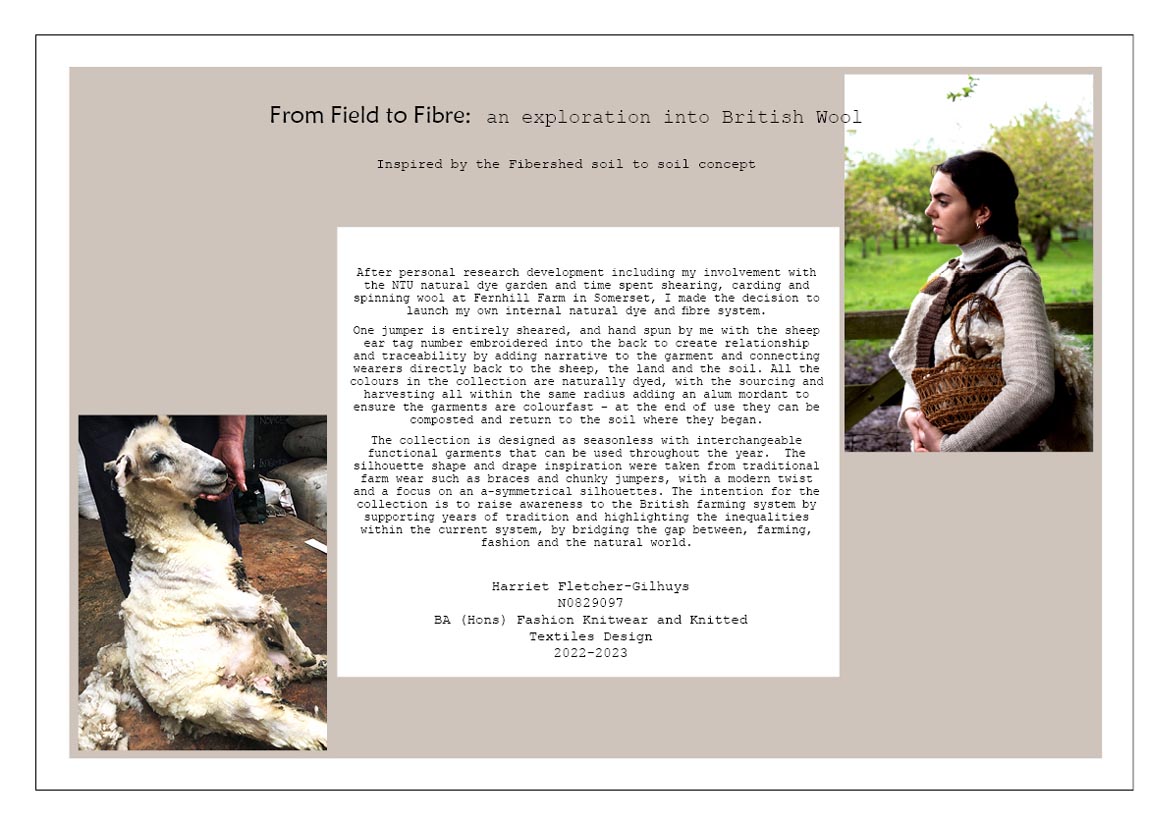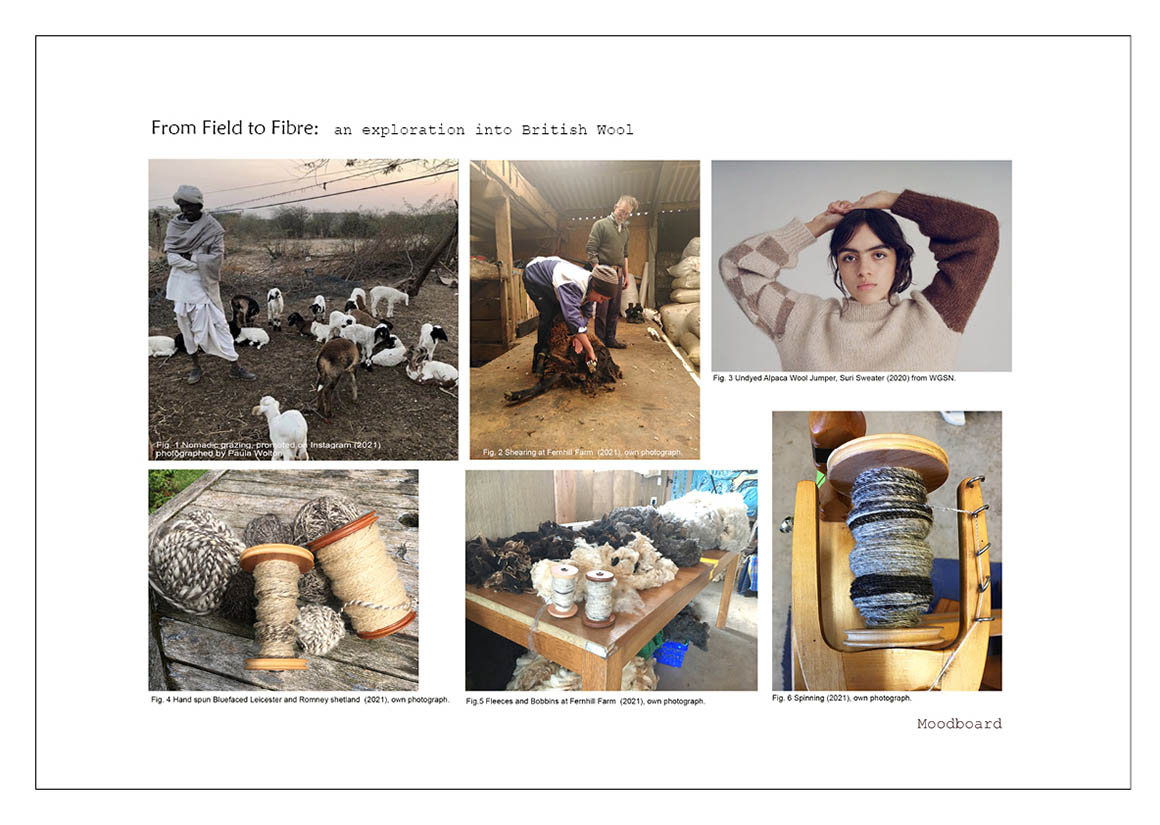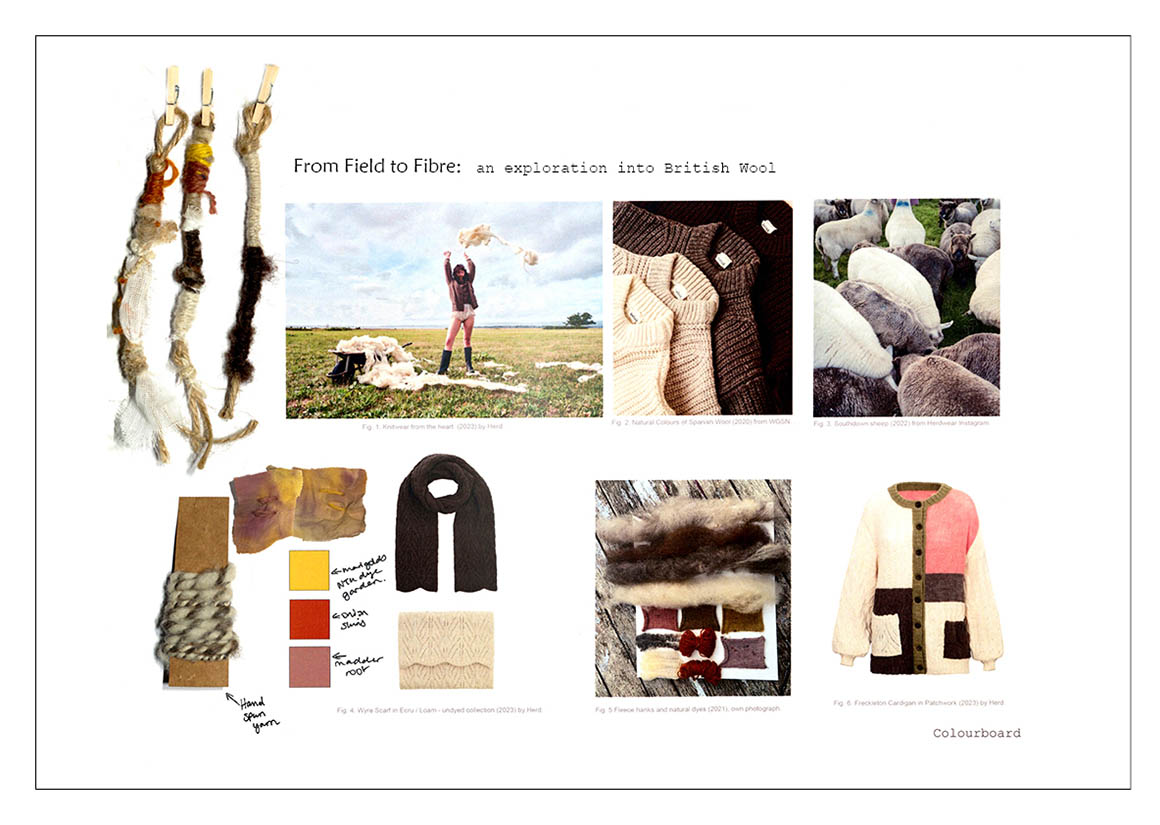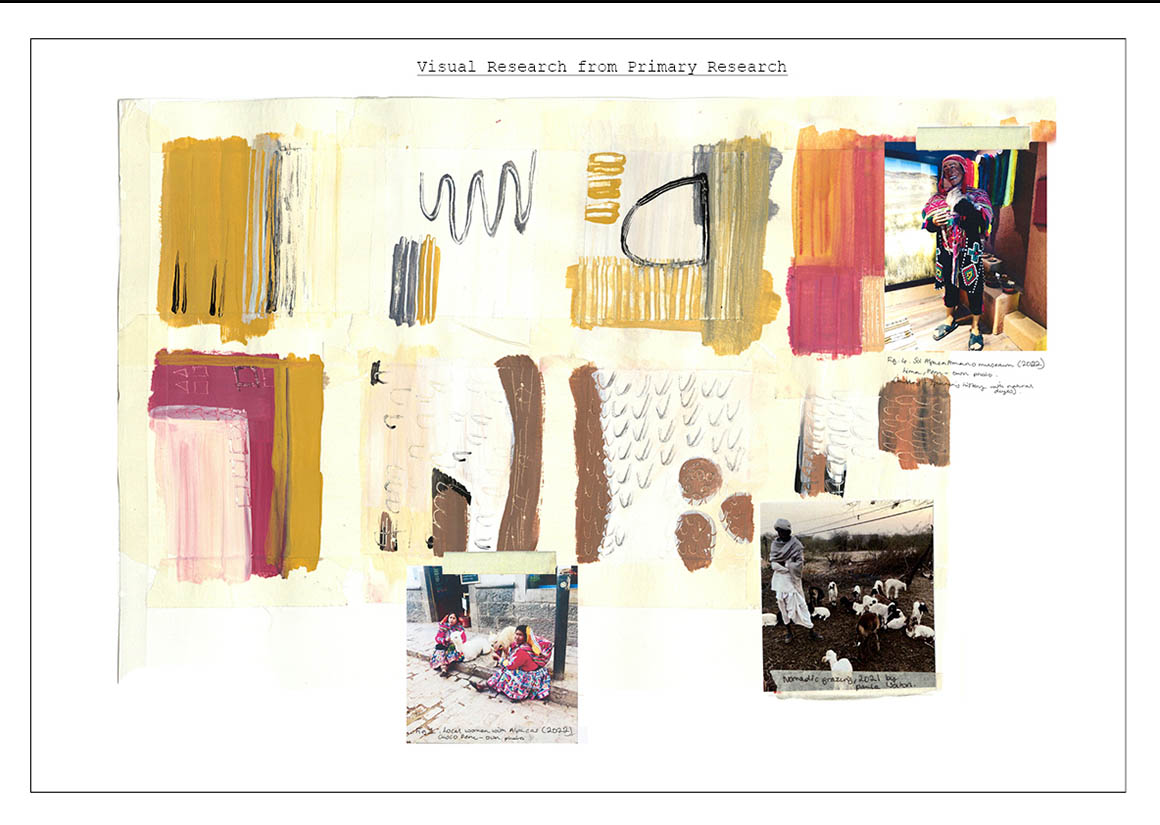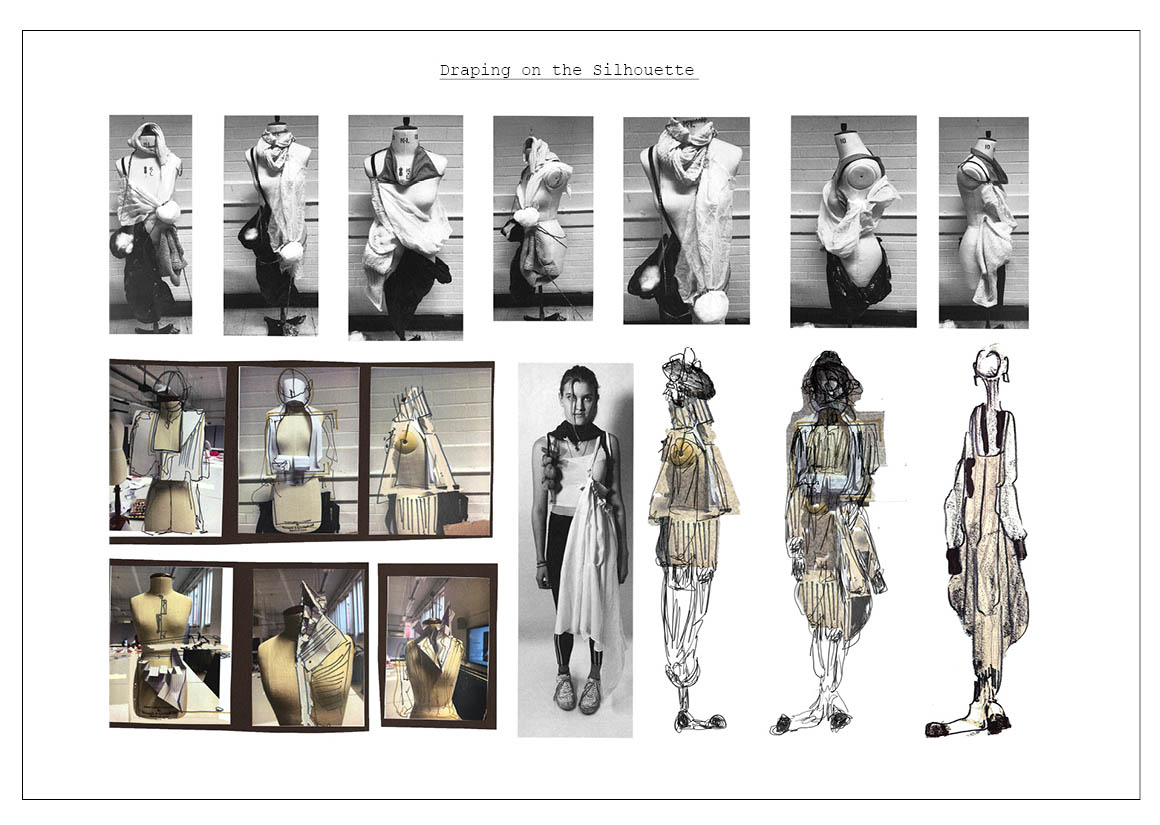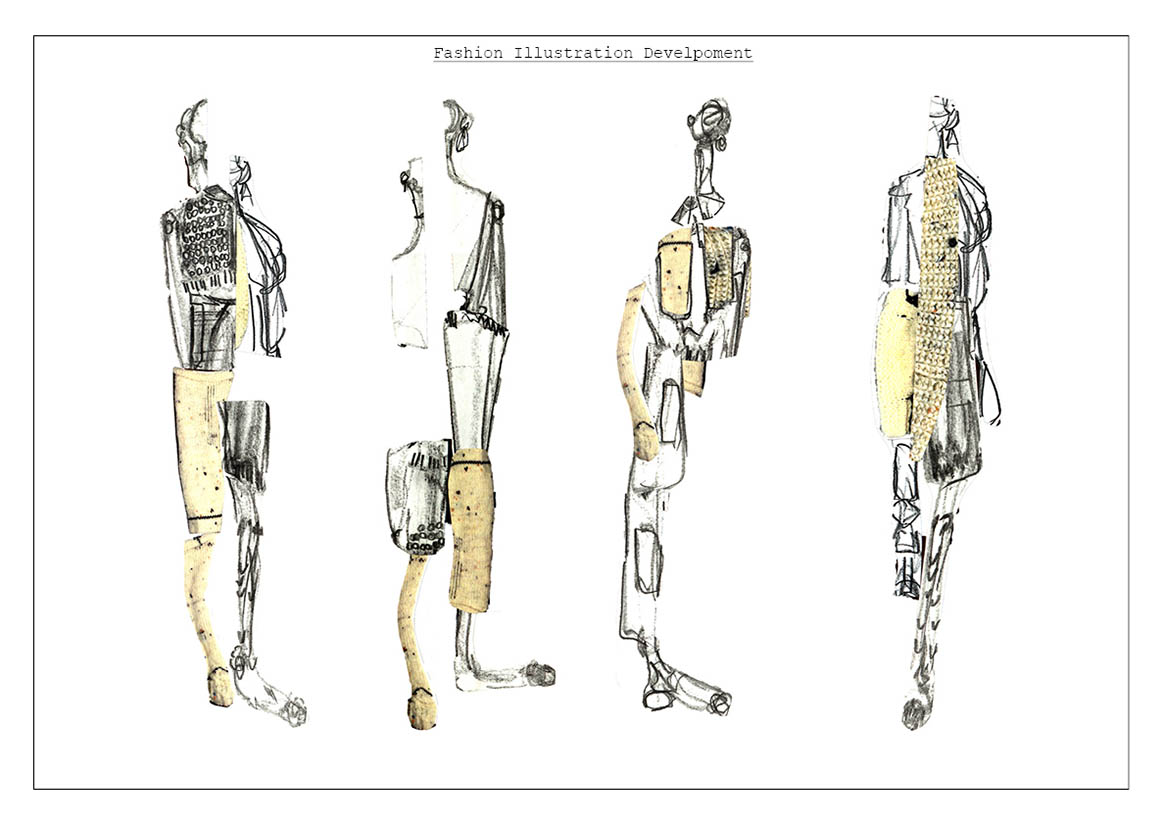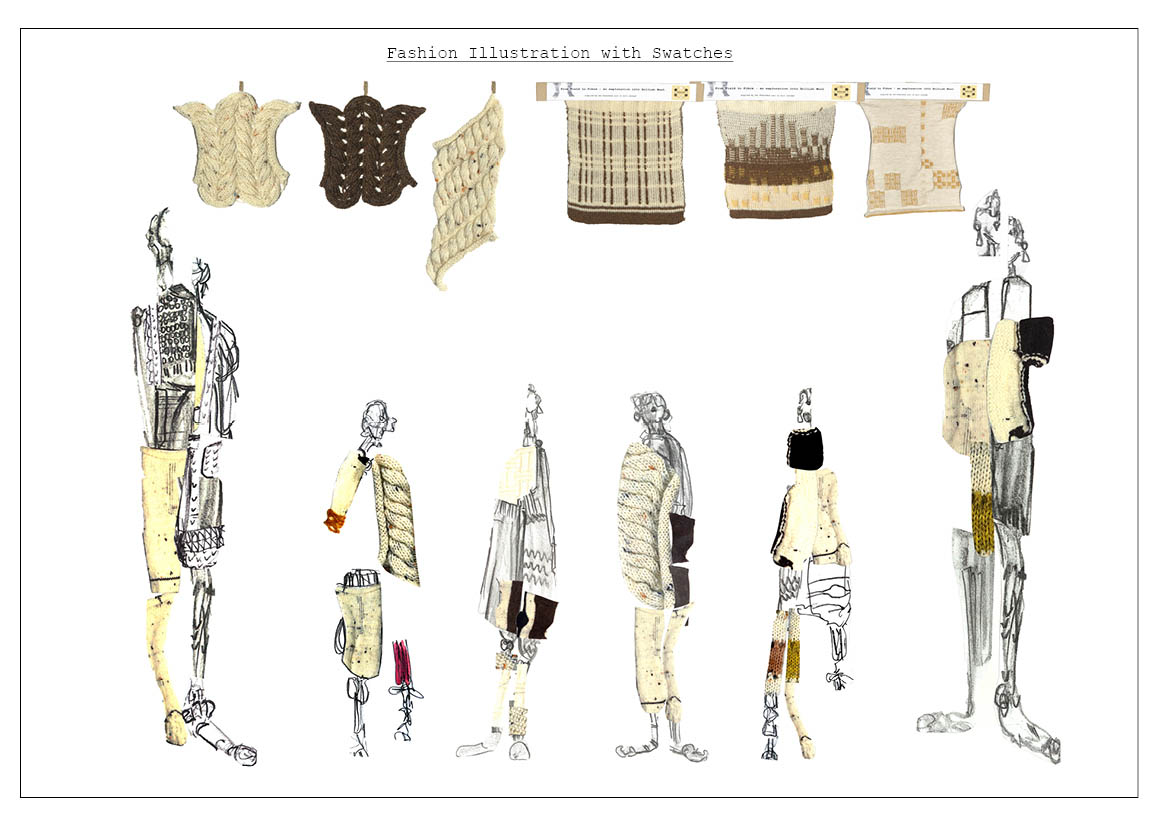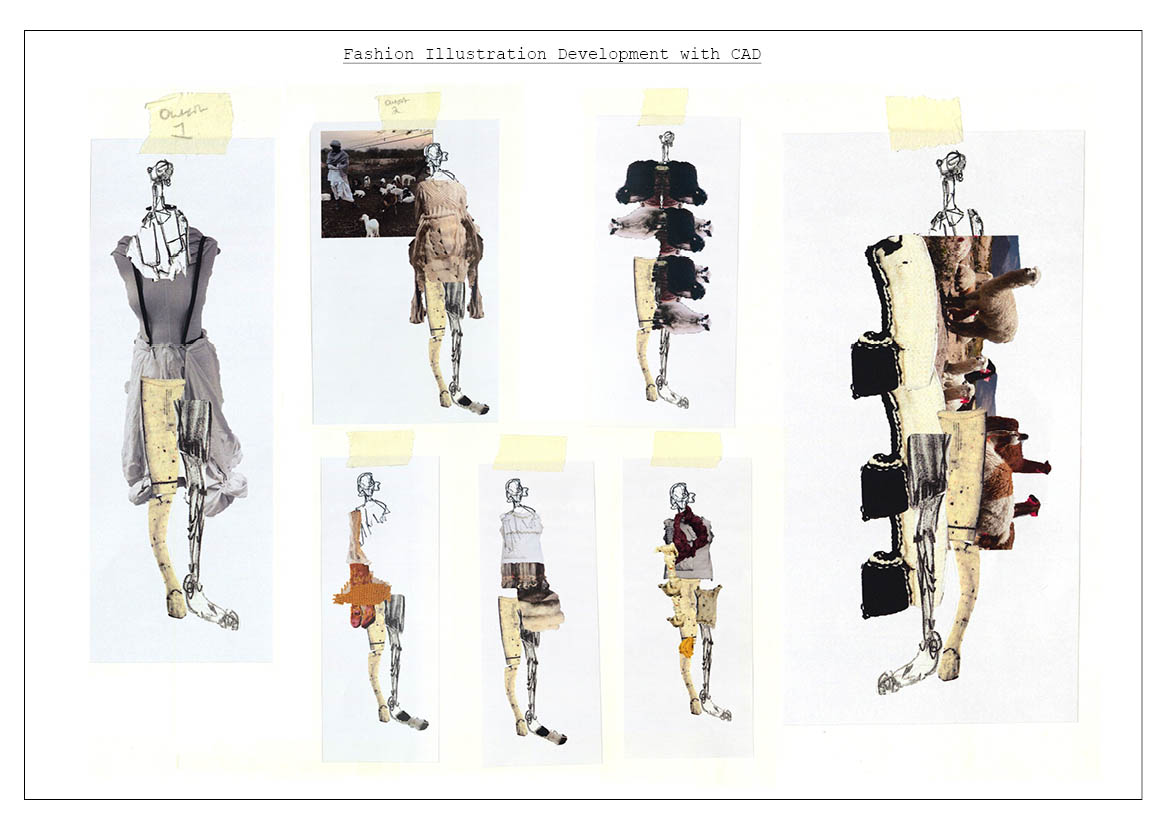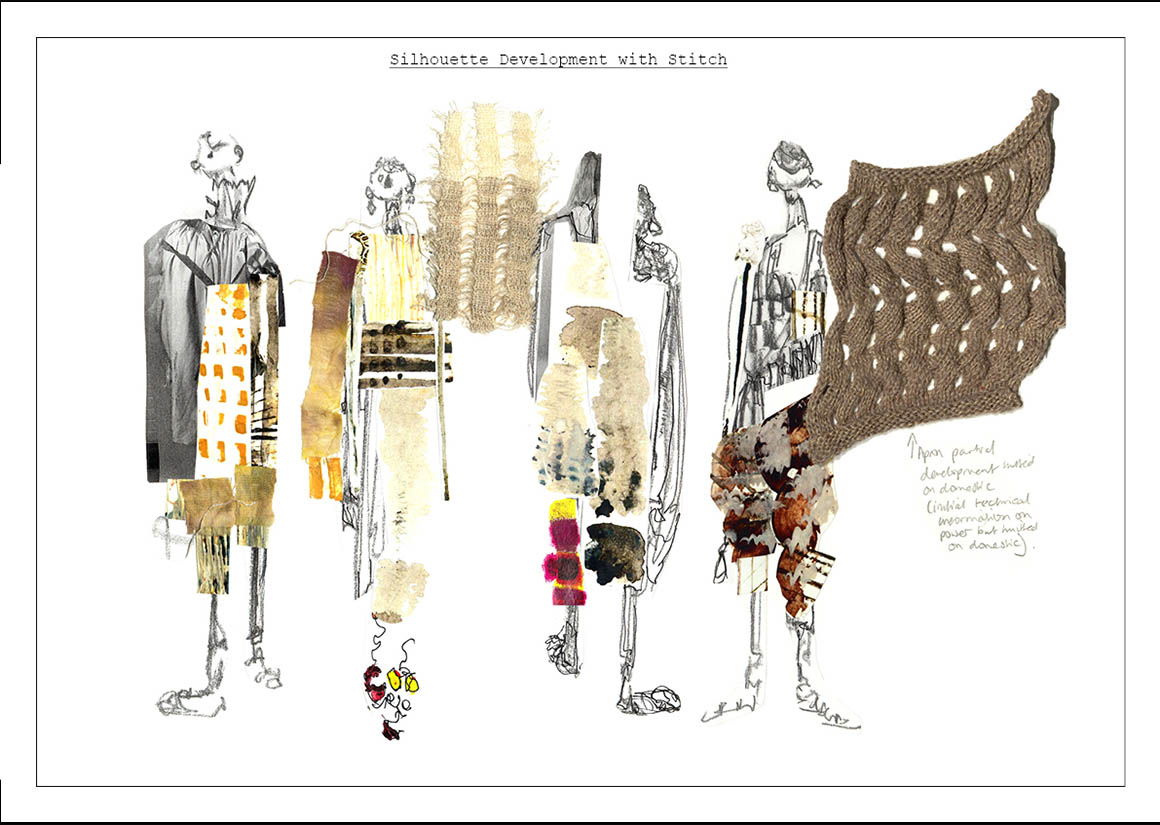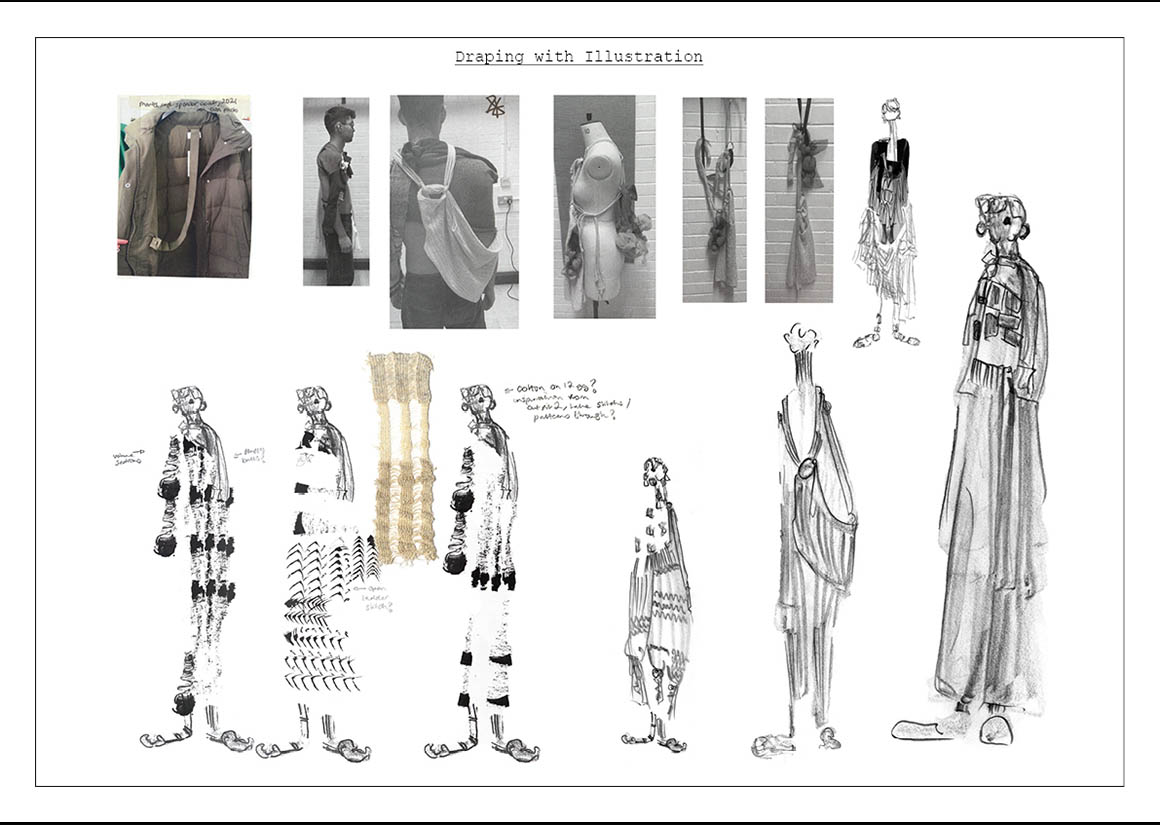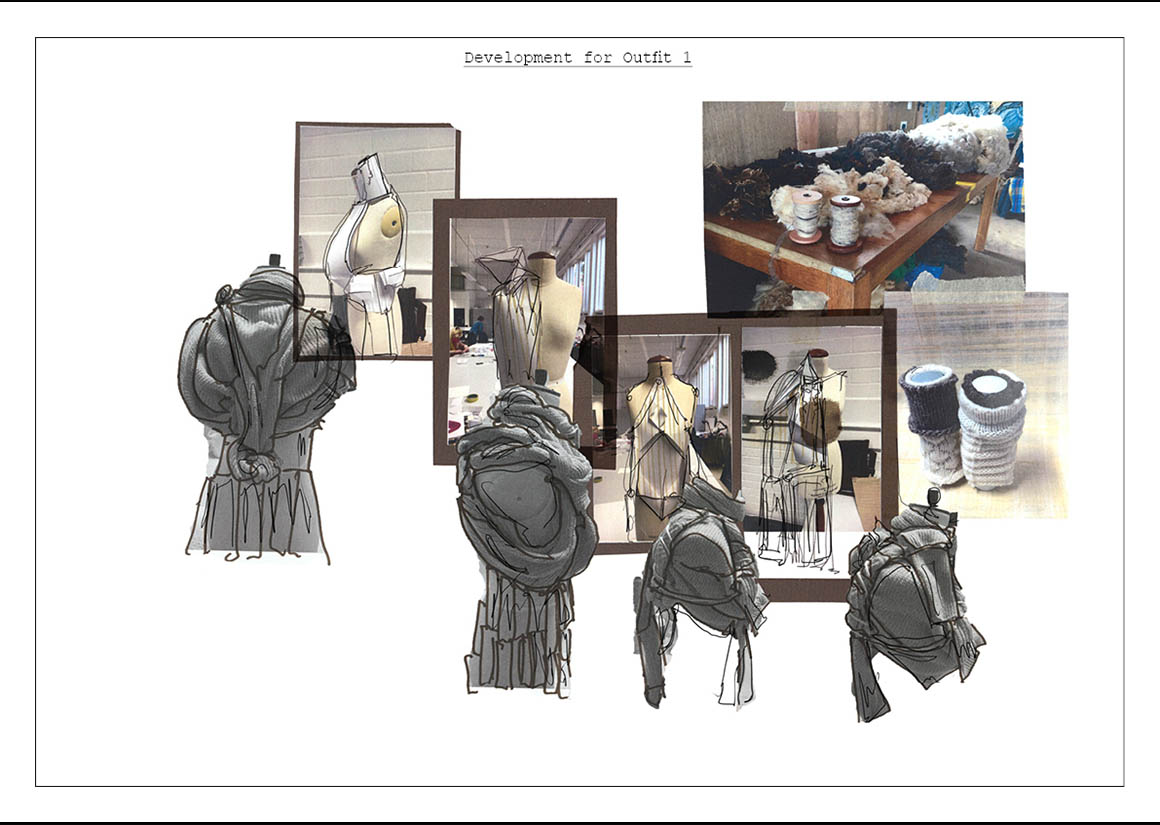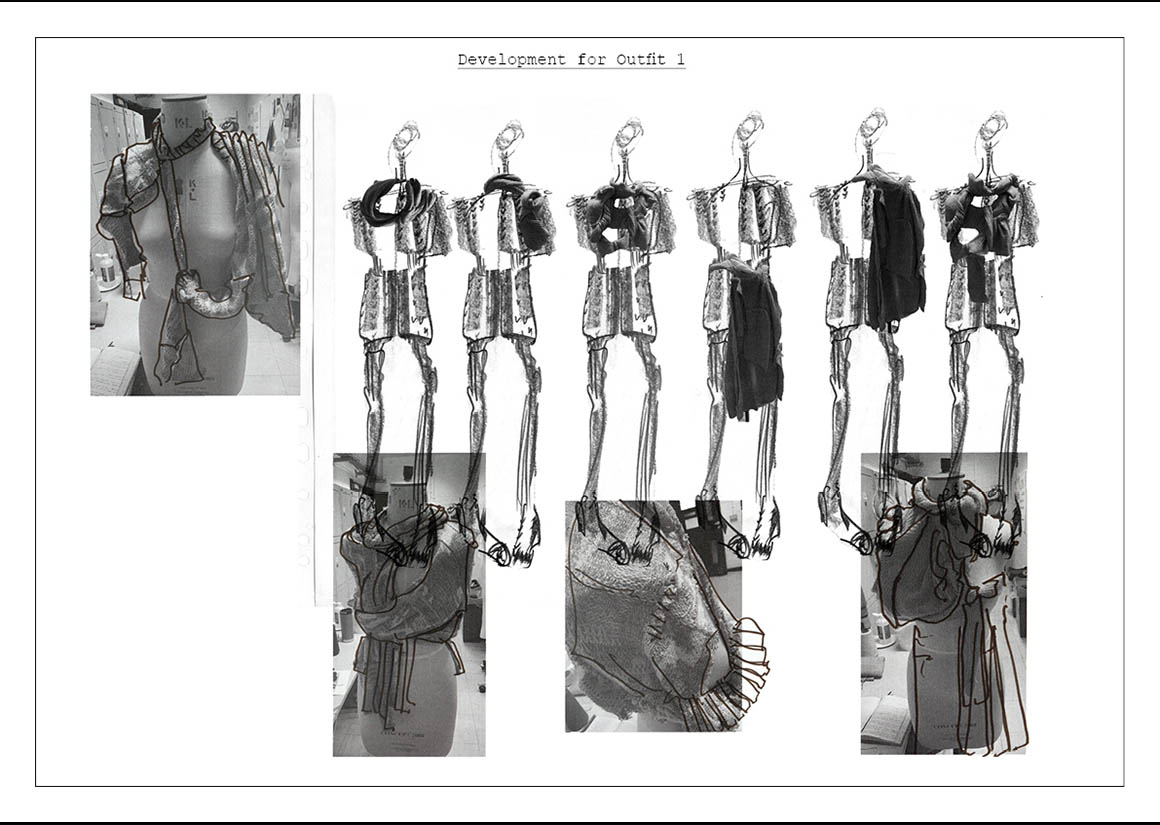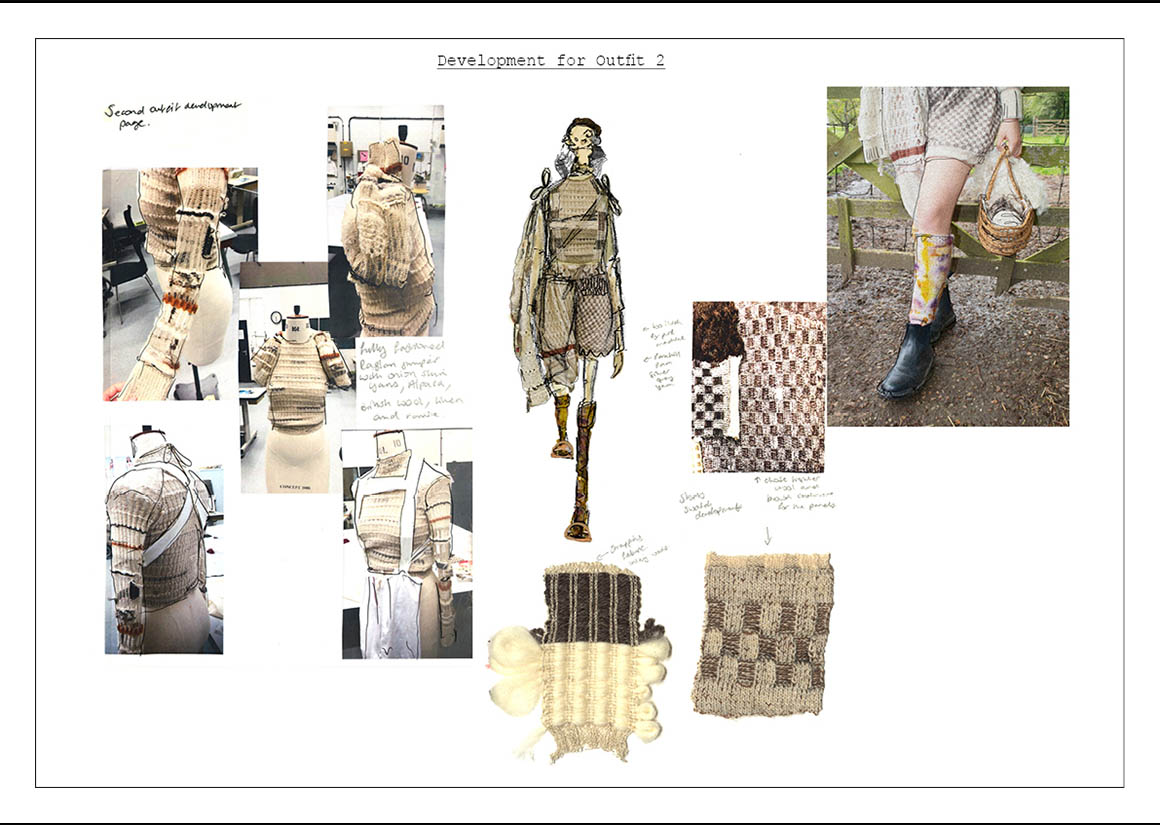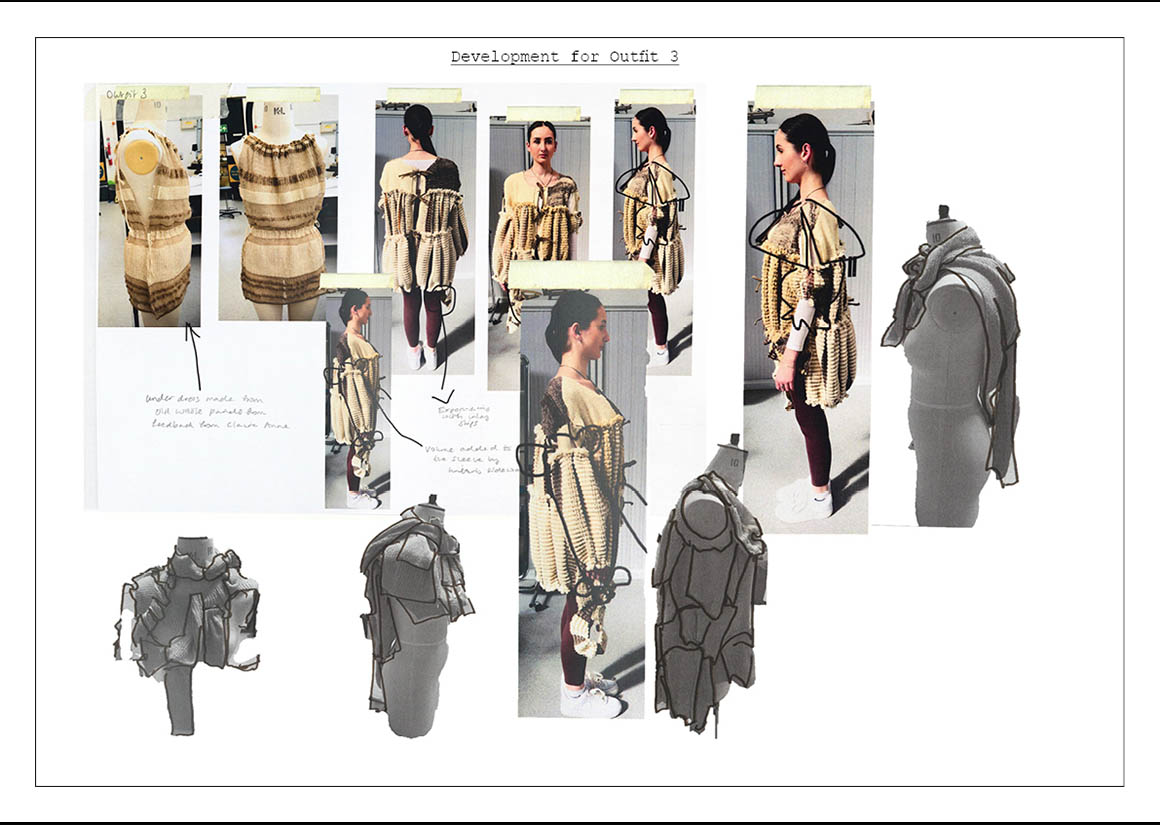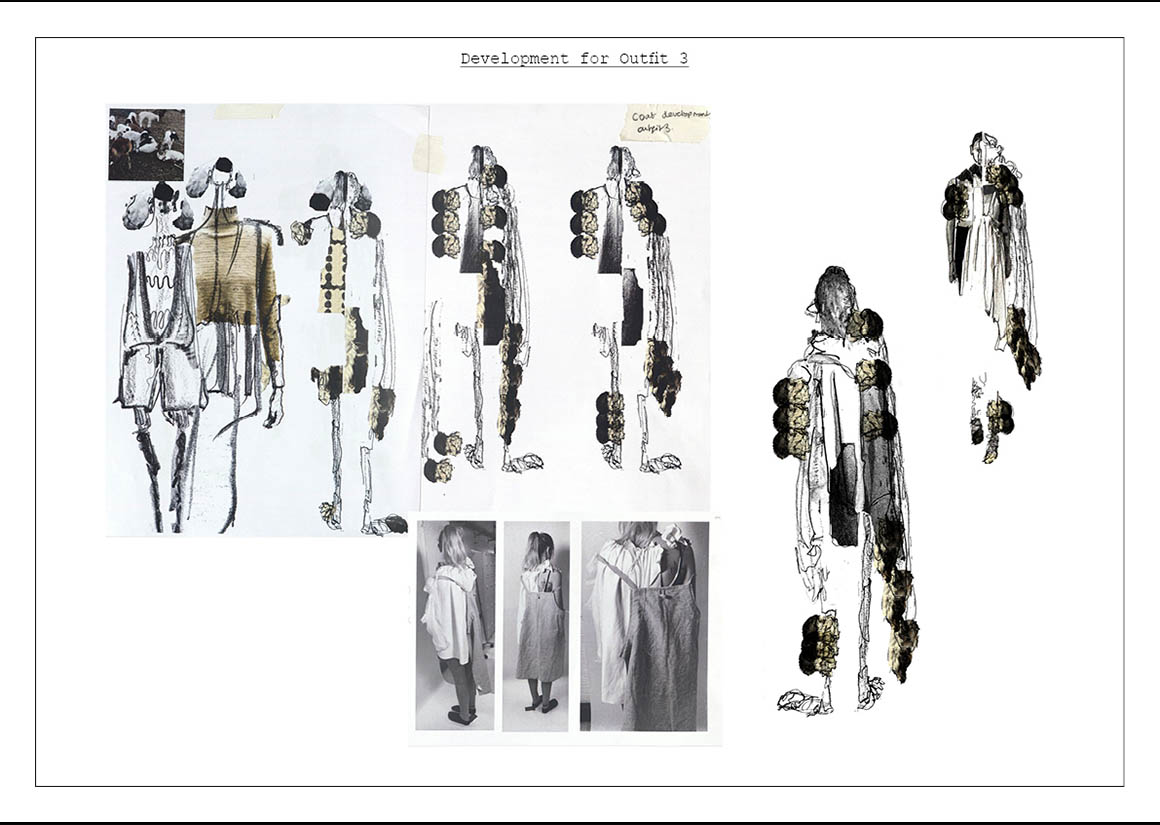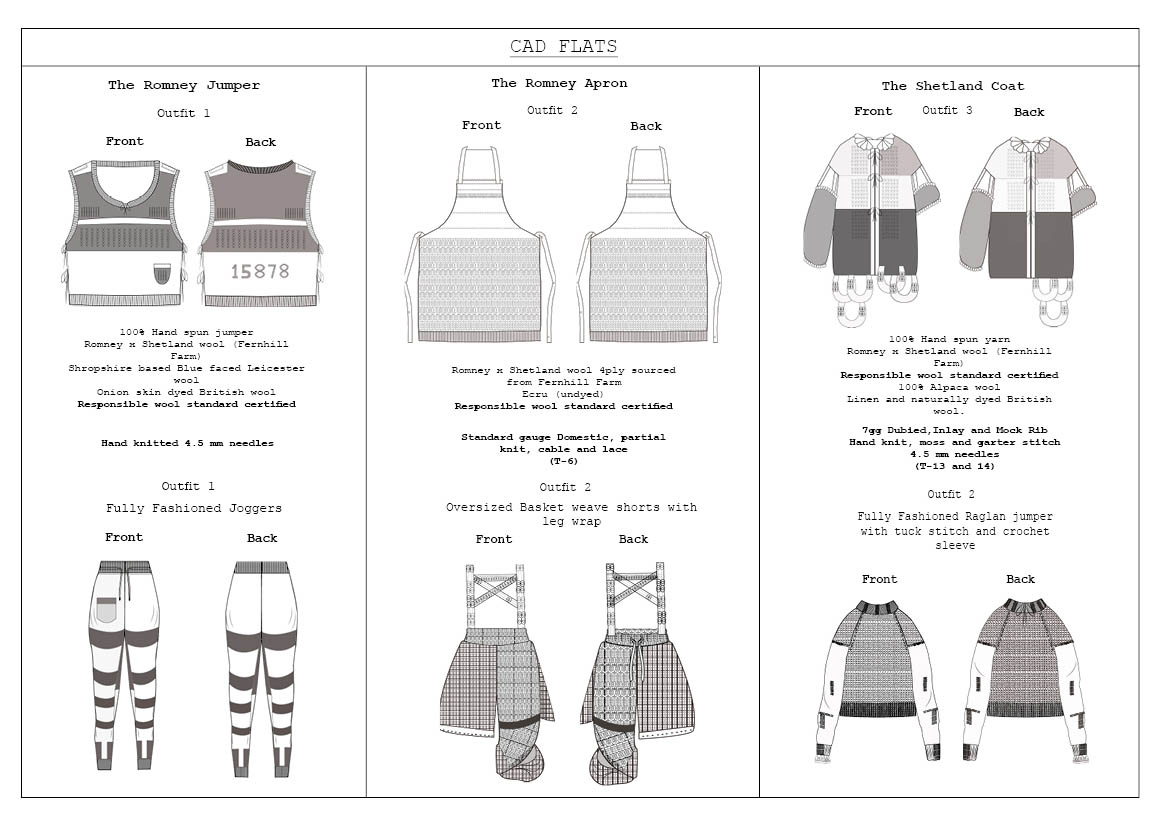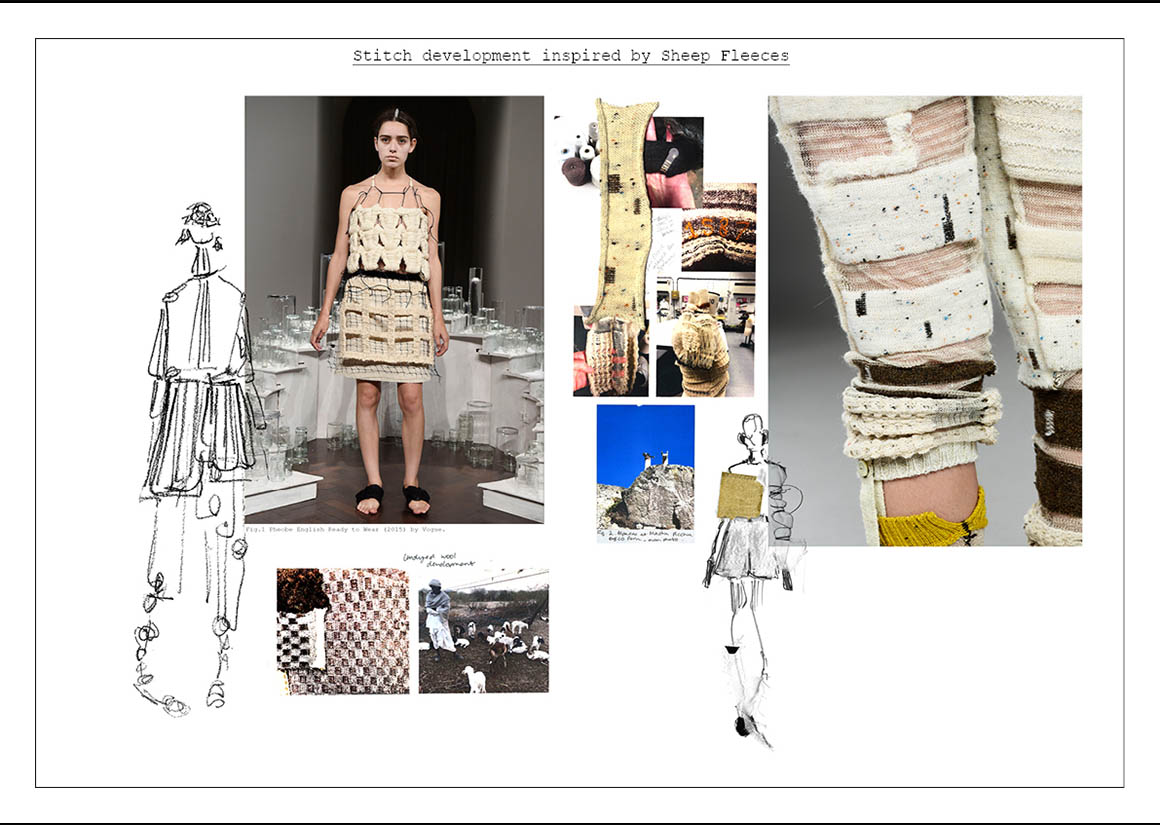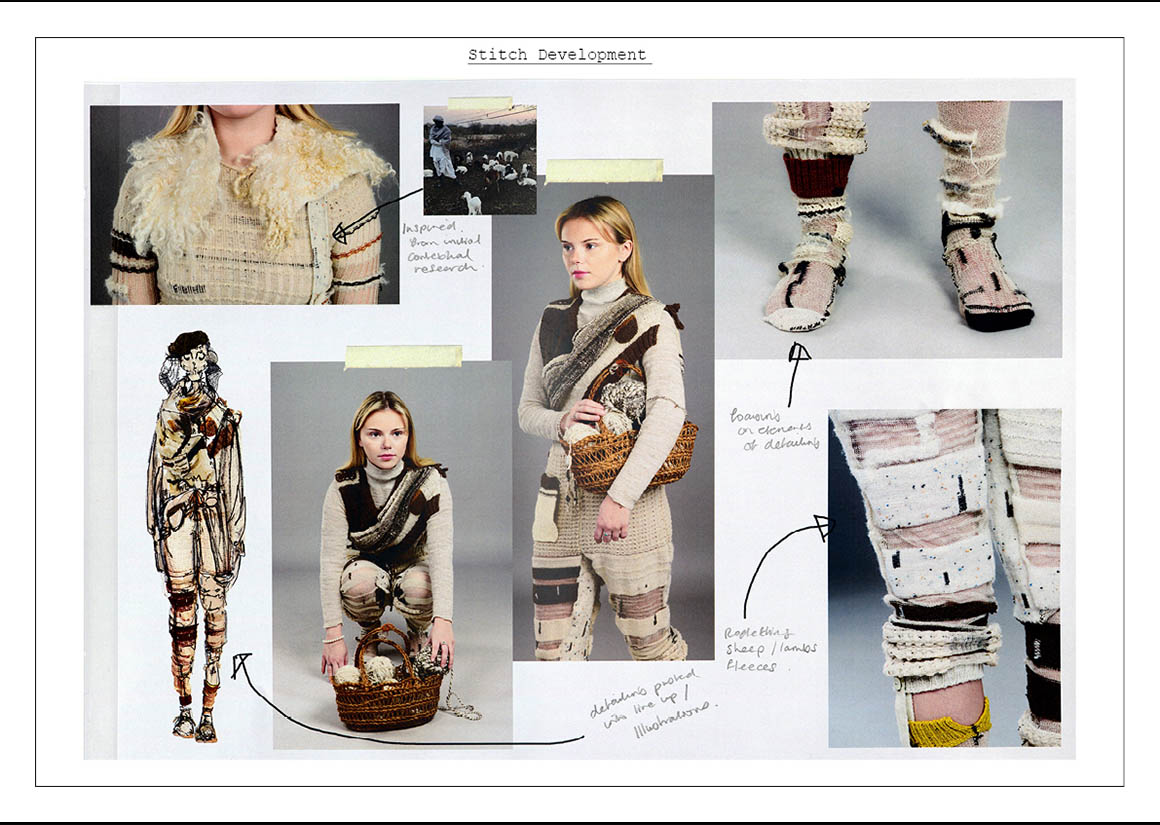
About Me
Harriet, a Fashion Knitwear Student from Nottingham Trent University.
I didn’t want to be another fashion student just interested in creating more clothes fuelling a highly destructive industry.... During my time at university, I quickly became aware about the inequalities within the current fashion system anywhere from major environmental demands to the animal and human cost behind the production process.
After years of researching my interest sparked around the concept of 'Regenerative Agriculture' a holistic farming practice that focuses on a soil-to-soil regenerative system reconnecting farming back to fashion. After helping to establish the NTU natural dye garden along with a MA student, I challenged myself to create my own internal natural fibre and dye system.
INSPIRATION
Graduate Collection ' From Field to Fibre: an exploration into British Wool'
Inspired by the Fibershed movement, a non-profit organisation that challenges designers to create a climate beneficial collection within a 150-mile radius from field all the way through to the final production process. After time spent shearing sheep and spinning wool, I knitted one entire jumper from a single fleece from a Romney x Shetland Flock at Fernhill Farm in Somerset (a fellow member of Southwest England Fibreshed).
All of the colours are naturally dyed using plants and food waste that I harvested from the NTU dye garden so that after use, the garments can be placed on a compost and return back to the soil where they began. The project encompasses the values of reconnecting British sheep to the knitwear industry, and industry to British sheep by using storytelling as a way to connect wearers with their clothes and gain and wider understanding of the importance of using British Wool in garment production.
MY WORK
PORTFOLIOS

DETAIL
100% Hand Spun Jumper with Ear Tag Number
Displayed is the 100% Hand spun jumper from the Romney x Shetland flock in Somerset spun on my Ashford spinning wheel. I did the whole process from shearing the sheep, carding the wool, spinning, washing and plying it into balls to be hand knitted using 4.5mm needles. The ear tag number has been hand embroidered on the back using onion skin British Wool dyed yarns.
